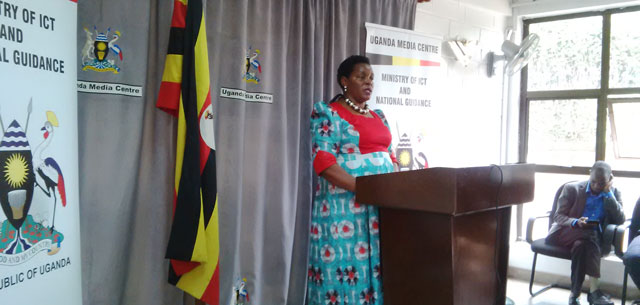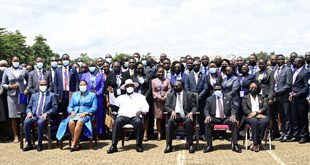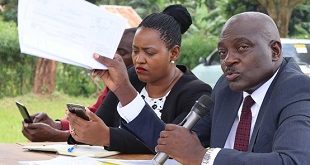
Kampala, Uganda | THE INDEPENDENT | Uganda will join the rest of the world in celebrating the International Women’s Day on March 8, with the focus this year being on empowering rural women and girls as they are seen as the country’s engine to spur overall socio-economic and inclusive development.
As more than half of Uganda’s population women, and in the rural area, Minister of State for Gender and Culture Affairs Peace Regis Mutuuzo has said the celebrations this year will look at their achievements, opportunities and potential in terms of socioeconomic advancement despite the hard conditions they face. This year’s theme will be “Empowerment of Rural Women and Girls: Opportunities and Challenges.”
“Rural women are known to spend more time than urban women and men in reproductive and household work, including time spent caring for children and the sick, the elderly and other vulnerable groups in the households. These multiple tasks and workload however severely limit women’s participation in formal employment opportunities,” Matuuzo told the press on Monday.
She asserted that that rural women and girls fuel local and national economies through their contribution to agriculture and rural enterprises and need to be fully supported. She added that women are central to the sustainability of rural households and communities, improving rural livelihoods and overall well-being.
“Empowering rural women and girls therefore is key to the well-being of individuals, families and rural communities, but also to overall socio-economic and inclusive development,” she said.
The Uganda National Household Survey (UNHS) 2017 established that of the 37.7 million people in Uganda, 52 percent were females. Meanwhile 76% of all Ugandans reside in rural areas and only 24% are in urban areas.
The National Population and Housing Census Analytical Report, 2017 revealed that more rural households (90%) participate in agriculture compared to the urban households (46%). And yet 1 (one) in every 7 (seven) households obtain their livelihood from subsistence farming.
“This implies that many of our social factors play out in the rural areas, where the women and girls are the majority, and therefore puts them at the centre stage of economic production, care and support to families as well as engaging in community management activities,” the minister said.
She listed legal and policy frameworks as well as interventions that government has made as they endeavour to create a favorable environment for women and girls to realize their rights and potential.
Key among them is the The Local Government Act, 1997 provides for women’s representation in decision making at all levels of governance; The Land Act, 2010 Cap 227 and Land Policy (2013) contain provisions for security of tenure and safeguard of land rights of women and children; the Public Finance Management Act (2015) provides for ring-fencing finance allocation for programmes for gender equality and empowerment of women.
She said policies that support girls’ education such as the Universal Primary Education (UPE), the Universal Secondary Education (USE) and the Gender in Education Policy have led to increased literacy rates, enrollment ratios in primary and secondary schools as well as attainment ratios.
My Ministry is successfully running the government’s flagship community empowerment programmes namely; the Uganda Women Entrepreneurship Programme (UWEP), the Youth Livelihood Programme (YLP), and Social Assistance Grant for Empowerment (SAGE)
“However, women and girls still face multiple and intersecting inequalities and forms of discrimination. Rural women face challenges in terms of access to productivity resources as some customary, traditional and religious practices discriminate against women and undermine the full implementation of some laws,” minister Matuuzo said.
 The Independent Uganda: You get the Truth we Pay the Price
The Independent Uganda: You get the Truth we Pay the Price


